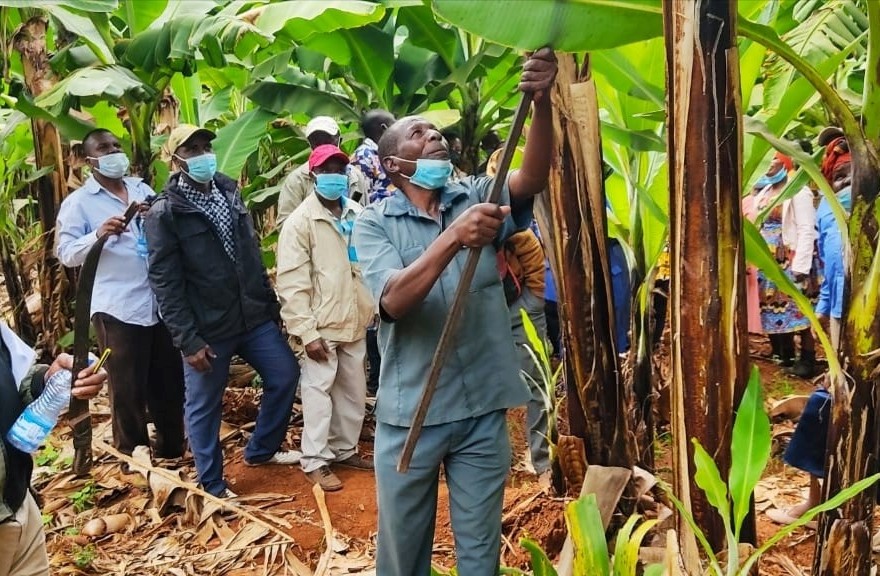The MESPT/Orana/Wanda consortium has received additional funding to embed sustainability and green growth practices in the ongoing banana value chain project in Taita Taveta County, Kenya. The additional funding total is DKK 7,804,474 of which DKK 4,364,474 is from the Danish Ministry of Foreign Affairs (DMFA) and the difference a contribution by the consortium partners.
| Development Partner |
Micro Enterprises Support Programme Trust (MESPT) |
| International Commercial Partner |
ORANA A/S (https://orana.dk/) |
| Local Commercial Partner |
WANDA Agriculture Group Limited (https://wandaaggroup.org/) |
| Location |
Taita Taveta County, Kenya |
| Sector |
Agriculture |
| Duration |
July 2020 – June 2025 |
In this action, Orana will green its commercial business case by adopting circular solutions in banana processing and enhancing eco-friendly post-harvest management practices. These practices will include waste management, water recycling and reuse of materials with 100% of the waste at the facilities converted into compost manure. Additionally, opportunities for alternative clean and renewable energy to run the factory, organic farm and packhouses will be exploited. Orana will also support organic certification for 500 small holder farmers targeted for organic farming, through training and establishment of eco-pack houses for the organic farming cluster(s). The organic farm will double up as a farmer field school to impart skills and knowledge to farmers on organic farming, nature-based farming solutions and vermicompost manure production.
Wanda Agriculture Group (WAG) Limited will extract products from banana pseudo stems, upgrade her digital system to accommodate green functionalities, and production of compost manure from banana waste enhancing income stream and sustainability. Further, WAG will promote adoption of eco-friendly practices in harvesting and post-harvest handling, storage, and aggregation. Farmer linkages to safe food market opportunities will be facilitated.
The consortium will promote climate smart and regenerative agricultural practices, promote safe food production among smallholder farmers and work with key stakeholders and market players to institute green compliance framework for organic and safe food production and promote demand for the same. The 20 demonstration farms supported by the project will integrate greening solutions like water use efficiency through drip irrigation, cover cropping, integrated pest management and sustainable soil fertility improvement. Partnerships for inclusive green growth and circular economy practices will be developed and mechanisms for engagement established with a view of advocating inclusion of green initiatives in the County Integrated Development Plan (CIDP). Development and rollout of green financial products will facilitate access to greening solutions by various actors. It is expected that through the additional activities’ incomes of the 2,000 targeted smallholder farmers will increase by at least 40% (on average) and that at least 600 direct decent jobs will be created. The activities will lead to reduced carbon emissions and sequestration, improvement of soil quality while also enhancing food security amongst targeted households.
